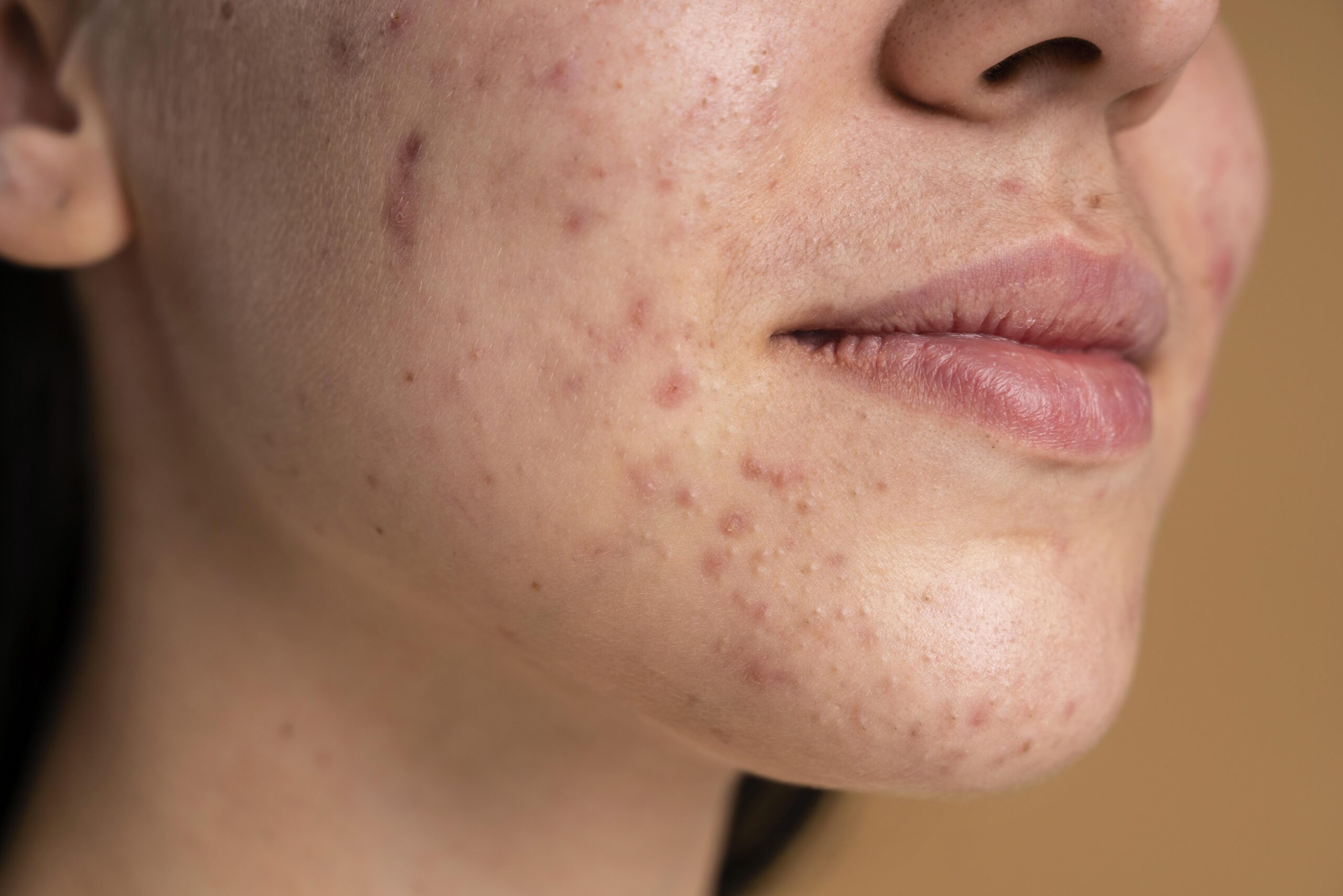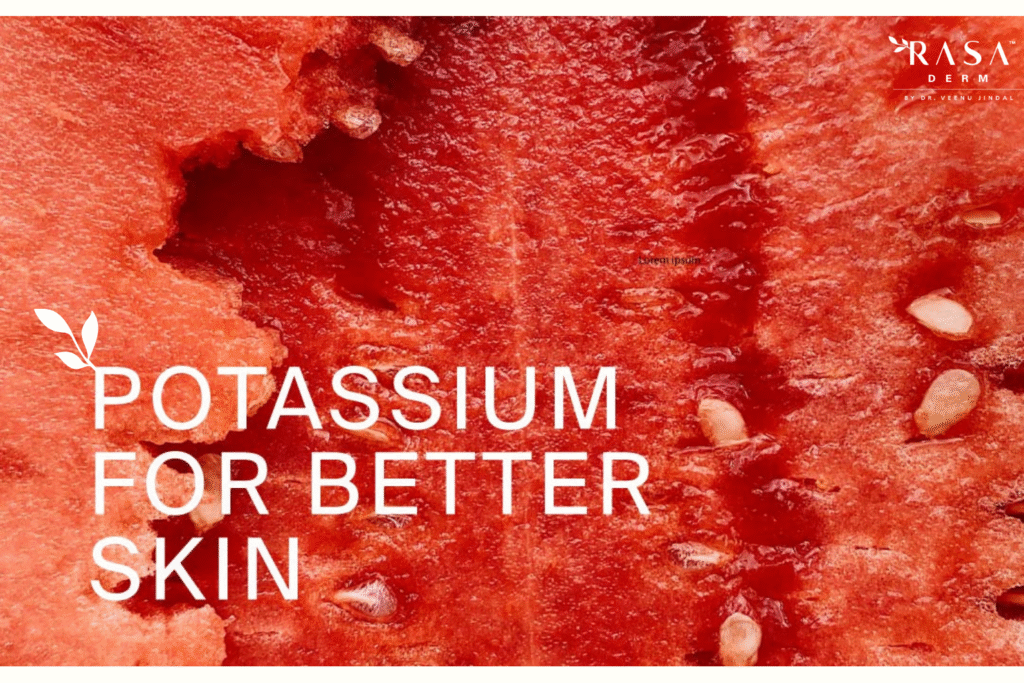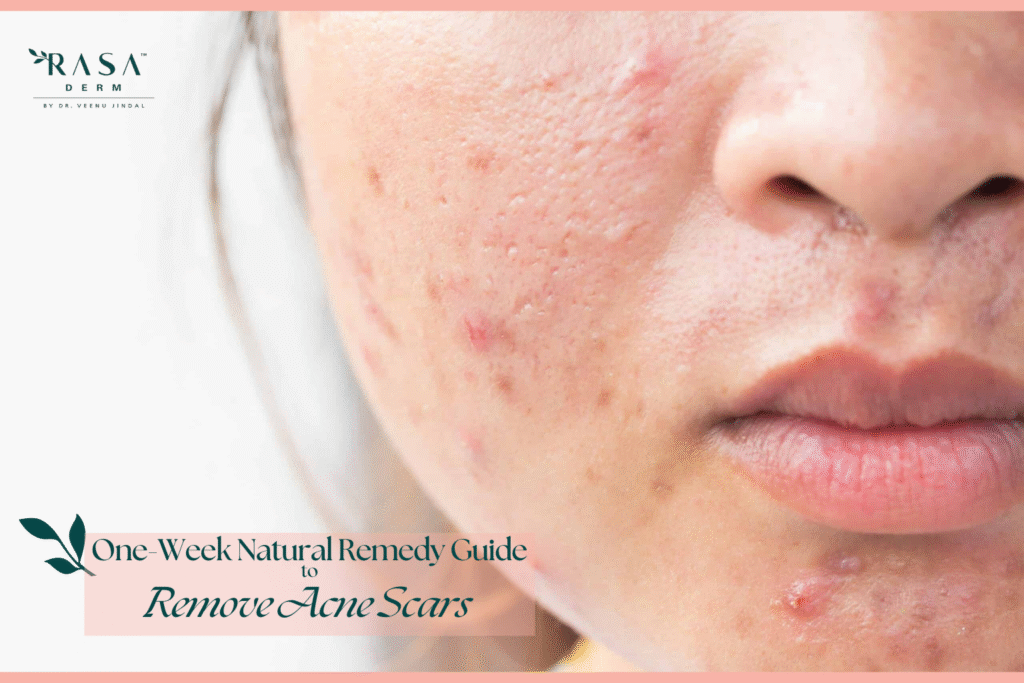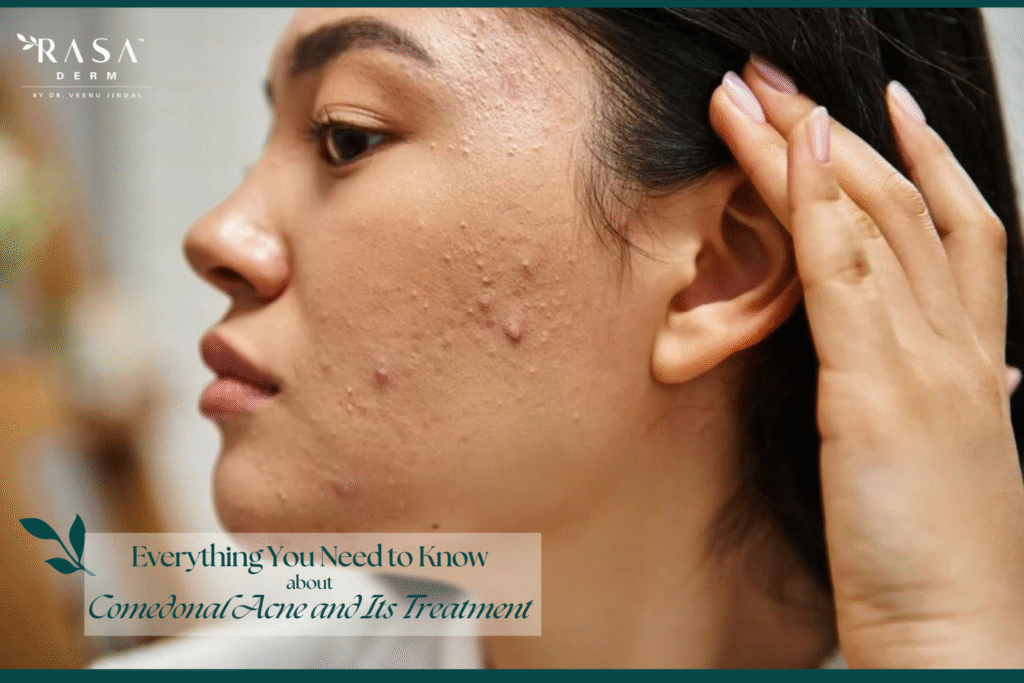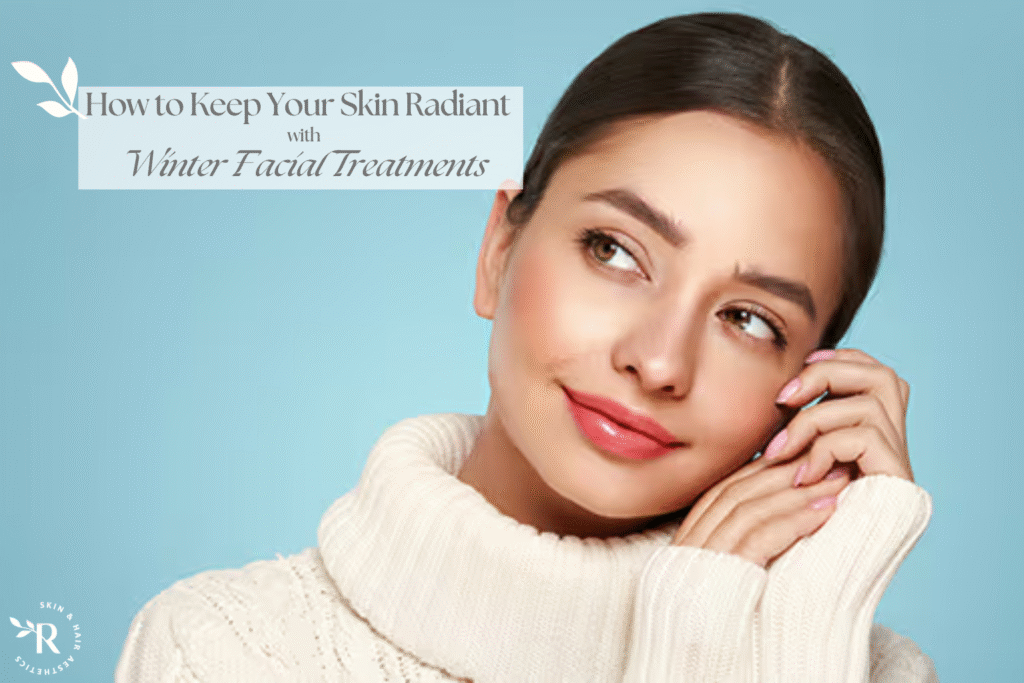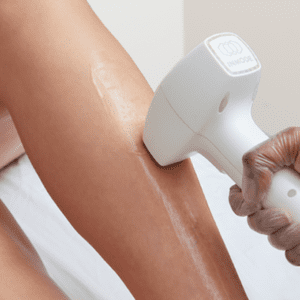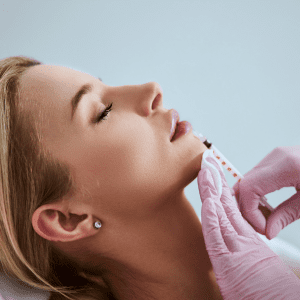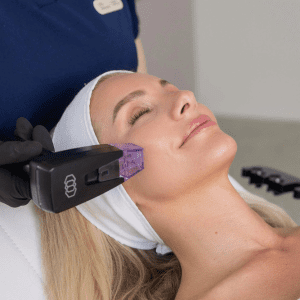People of all skin types are susceptible to hyperpigmentation on their cheeks, which can manifest as dark patches, black dots, or uneven skin tone. Even though it might not be harmful to health, it can have a significant effect on emotional stability and self-esteem.
Leading dermatologist Dr. Veenu Jindal of Rasa Derm explains all you need to know about black spots on the face in this guide, including their causes, the latest treatments, and preventative advice.
Hyperpigmentation: What Is It?
The term “hyperpigmentation” describes the darkening of a skin area brought on by an excess of melanin, the pigment that gives skin its color. This may show up as:
cheeks with dark spots
The face’s black pigmentation
Uneven tone or brown patches on different parts of the face
Although hyperpigmentation can occur anywhere on the body, sun exposure and hormone changes make the cheeks especially vulnerable.
Common Reasons for Dark Spots on the Cheeks
Effective treatment requires an understanding of the underlying problem. The following are a few of the most typical triggers:
1. Exposure to the Sun
The most frequent cause of black spots on the face is UV exposure. Long-term exposure without sunscreen increases the formation of melanin, which can lead to melasma or sunspots.
2. Hormonal Imbalance
Melasma, a type of hyperpigmentation that frequently affects the cheeks and forehead, can result from hormonal changes brought on by pregnancy, birth control medications, or thyroid problems.
3. Hyperpigmentation following inflammation (PIH)
After the inflammation goes down, dark marks may remain on the face from burns, acne, or other facial injuries.
4. Genetics
Some people, especially those with deeper skin tones, are genetically prone to higher melanin activity.
5. Ineffective Skincare Techniques
Picking at pimples, regular face waxing, and the use of harsh treatments can all cause pigmentation or exacerbate pre-existing spots.
Options for Treating Cheek Hyperpigmentation
Don’t give up if you’re having trouble with black spots that keep appearing on your cheeks. Rasa Derm offers a number of dermatologist-endorsed, efficacious solutions:
1.Topical Interventions
These often serve as the first line of defense and consist of:
- Hydroquinone: A potent lightening agent for the skin
- Over time, retinoid helps reduce spots and increase cell turnover.
- Vitamin C: Antioxidant that lightens skin and inhibits the production of melanin
- Niacinamide: Enhances skin tone and inhibits the transfer of melanin.
Although there are over-the-counter alternatives, it is best to utilize them under the supervision of a licensed dermatologist like Dr. Veenu Jindal in order to minimize irritation and optimize outcomes.
2.Chemical Peels
Chemical peels exfoliate the top layer of skin, removing dead cells and pigmented areas. Options like glycolic acid, salicylic acid, or TCA peels are tailored based on skin type and pigmentation severity.
At Rasa Derm, customized medical-grade peels offer effective pigmentation clearance with minimal downtime.
3.Laser Treatments
Laser for pigmentation on face is one of the most advanced and long-lasting options. At Rasa Derm, the following modalities are used:
- Q-Switched Nd:YAG Laser: Targets melanin without damaging surrounding skin
- Fractional Laser Resurfacing: Boosts collagen while reducing stubborn pigmentation
- Pico Laser (if applicable): A faster, more precise laser that works at a deeper level
These treatments are safe, especially under expert dermatological care. While results vary, most patients notice visible improvement within 3–6 sessions.
Hyperpigmentation laser treatment cost depends on the type of laser, number of sessions required, and individual skin condition. At Rasa Derm, patients receive personalized treatment plans that balance efficacy and budget.
4.Skin Boosters & Mesotherapy
These treatments involve micro-injections of brightening serums, glutathione, and vitamins directly into the dermis, promoting even skin tone and radiance.
5.Medical Facials & Exosomes
For patients looking for non-invasive yet powerful treatments, medical facials combined with exosome therapy help repair pigmentation at a cellular level. These are especially beneficial for those with sensitive skin or mild discoloration.
Advice for Preventing Dark Spots on the Face
If skin-damaging behaviors persist, no matter how good the treatment, it will not last. The following are crucial daily guidelines to avoid facial black pigmentation:
- Every day, including inside, use broad-spectrum sunscreen with an SPF of 50 or higher.
- Refrain from picking at scars or blemishes.
- Use bleaching products and strong scrubs sparingly.
- Choosing skincare products that are non-comedogenic
- Drink plenty of water and eat a balanced, antioxidant-rich diet.
- Wear a hat or scarf to protect your face during the hottest parts of the day.
- Consistent skincare is more effective than any quick fix, according to Dr. Veenu Jindal. Prevention is always preferable to cure, and it’s also more economical.
When to See a Dermatologist
If you’re noticing:
- Patches that are getting darker or larger
- Spots that don’t fade even after 2–3 months
- Skin irritation or redness around the pigmentation
- Hyperpigmentation spreading to other parts of the face
…it’s time to consult a board-certified dermatologist. Early intervention is key to avoid long-term scarring or deep dermal pigmentation that is harder to treat.
Dr. Veenu Jindal and her team at Rasa Derm offer a skin analysis session where your pigmentation type, triggers, and treatment goals are discussed in detail before a customized plan is created.
Concluding remarks
Cheek hyperpigmentation is more than simply a cosmetic issue; it frequently indicates that your skin is irritated, agitated, or exposed. You can get rid of these dark spots and restore your natural glow with the correct advice.
Dr. Veenu Jindal of Rasa Derm is a firm believer in treating the underlying cause as well as the symptom. Her clinic provides ethical, scientifically supported therapies that are effective without overpromising results, whether the issue is sun damage from years ago or lifestyle-induced melasma.
The moment to act is now if you’re prepared to bid adieu to those black spots on your face and welcome to healthier, clearer skin.
Patient Success Story: Real Results from Rasa Derm
One of the most fulfilling parts of our work at Rasa Derm is watching real people rediscover their confidence. A 32-year-old patient came to Dr. Veenu Jindal with stubborn black pigmentation on her cheeks caused by years of unprotected sun exposure and hormonal imbalance. She had tried various creams and home remedies, but nothing seemed to work.
After a detailed consultation, she was prescribed a tailored treatment plan that combined Q-switched laser sessions, antioxidant-rich skin boosters, and a custom at-home routine. Within just 8 weeks, her skin looked noticeably brighter. By her third laser session, the dark patches had faded by over 70%, and her skin tone looked more even and radiant.
What made the difference? The synergy of clinical-grade treatments, consistent care, and expert guidance. At Rasa Derm, results aren’t accidental — they’re evidence-based and achieved with precision.
If you’ve been struggling with pigmentation, know that you’re not alone — and it’s never too late to treat it effectively. With the right dermatologist and personalized care, even the most stubborn spots can fade into a thing of the past.


